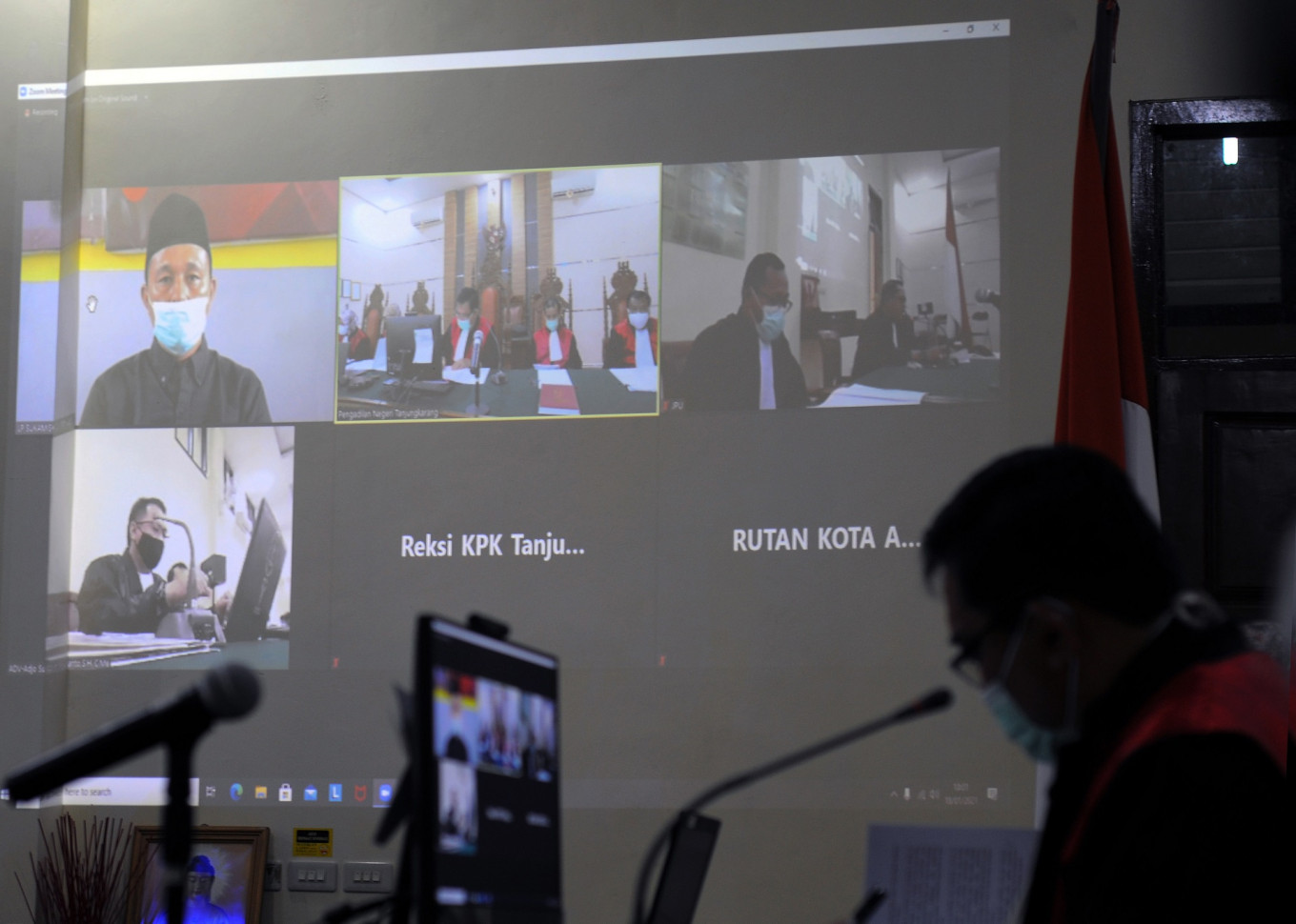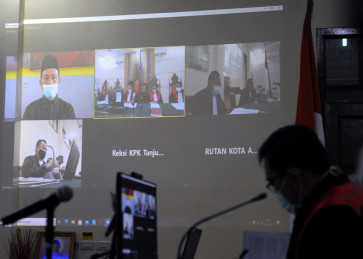Popular Reads
Top Results
Can't find what you're looking for?
View all search resultsPopular Reads
Top Results
Can't find what you're looking for?
View all search resultsCourt goes online during pandemic. Technical glitches now risk fair trial
Legal experts urge the court and other relevant stakeholders to address major glitches that might impact the judges’ rulings and harm defendants’ rights.
Change text size
Gift Premium Articles
to Anyone
 A judge speaks during a virtual hearing against former Central Lampung regent Mustafa at the Tanjungkarang Corruption Court in Bandar Lampung, Lampung on Jan. 18. During the hearing, prosecutors read an indictment letter against Mustafa for alleged bribery pertaining to goods and service procurement projects in the regency. (Antara/Ardiansyah)
A judge speaks during a virtual hearing against former Central Lampung regent Mustafa at the Tanjungkarang Corruption Court in Bandar Lampung, Lampung on Jan. 18. During the hearing, prosecutors read an indictment letter against Mustafa for alleged bribery pertaining to goods and service procurement projects in the regency. (Antara/Ardiansyah)
T
he Supreme Court has adopted a virtual trial system to help the country’s highest court handle more cases amid the pandemic and enact judicial reform quicker than planned, but recurrent technical glitches have called into question its ability to deliver justice.
The Supreme Court has allowed for all lower and appellate court hearings to be held via Zoom since April last year, roughly a month after the country detected its first COVID-19 patients.
The court signed an agreement with the Attorney General’s Office (AGO) and the Law and Human Rights Ministry, allowing the trial of criminal cases to be held online. It issued Supreme Court Regulation No. 4/2020 in September 2020 to serve as a legal basis for online trials for criminal cases.
According to the 2020 regulation, judges and prosecutors are allowed to be physically present in the courtroom during the trial of a criminal case. Meanwhile, the defendants will attend the hearing via video conference from their detention facilities.
Prior to the pandemic, only trials for civil and state administration cases were allowed to be held online as stipulated in a 2019 Supreme Court regulation.
Read also: Indonesian courts to go virtual during COVID-19
‘Blessing in disguise’

















